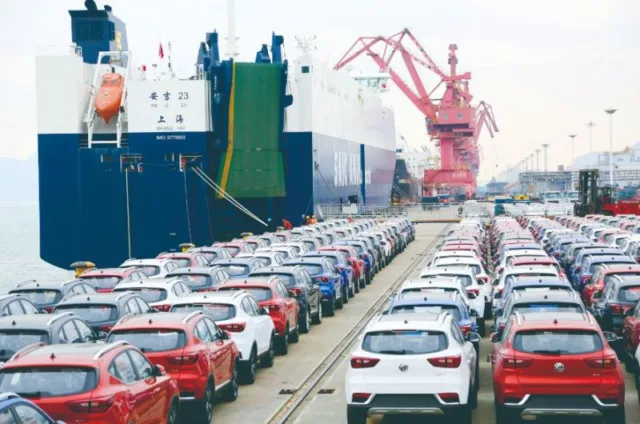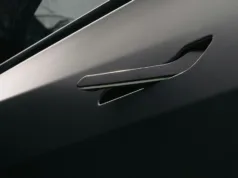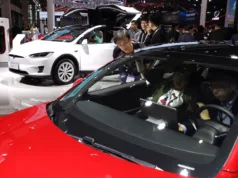
China is preparing to introduce a more comprehensive regulatory framework governing the export of automobiles, marking one of the most significant shifts in its automotive policy in recent years, News.Az reports
The new rules, designed to tighten oversight and improve product quality, come at a time when Chinese car exports—especially electric vehicles—have reached unprecedented levels worldwide.
Under the updated regulations, automakers intending to ship vehicles abroad must comply with stricter certification procedures, enhanced safety testing, and additional documentation obligations. Export-oriented companies will be required to verify that every model meets the technical, environmental, and safety standards of the destination market. Authorities are also establishing a unified national database that will record export data, track production batches, and monitor after-sales commitments.
Industry experts say Beijing’s new approach reflects two core priorities: protecting the rapidly growing reputation of Chinese manufacturers and addressing concerns raised by some foreign governments about regulatory transparency. As Chinese EVs gain popularity in Europe, the Middle East, Latin America, and Central Asia, the government has moved to strengthen oversight to prevent quality inconsistencies and safeguard long-term market access.
Analysts note that while the updated requirements will increase operational responsibilities for manufacturers—especially smaller exporters—they are expected to benefit the sector in the long run. Higher compliance standards could eliminate low-quality vehicles from the export market and encourage companies to invest more in technology, safety, and environmental performance.
Automotive associations in China have expressed support for the policy changes, arguing that a more regulated export environment will boost international confidence in the “Made in China” label, reduce disputes related to product safety, and create a more level competitive field among exporters.
According to market observers, the new rules signal China’s intention to move from quantity-driven exports to a model focused on quality, transparency, and sustained global competitiveness. As Chinese brands continue to expand their presence abroad, the reformed export regime is expected to shape the future of global automotive trade and further solidify China’s position as one of the world’s leading vehicle suppliers.









